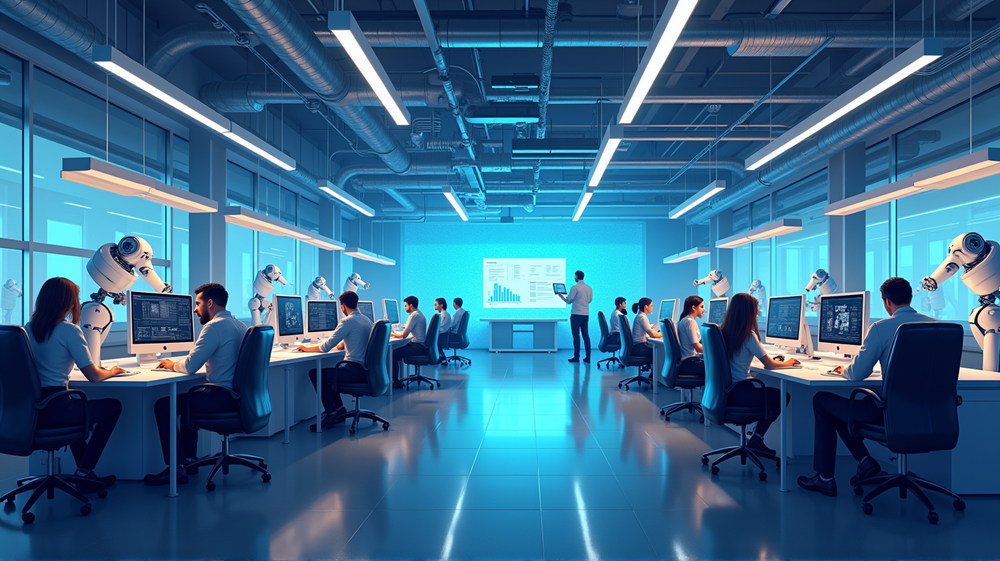In an era that promises unprecedented technological transformation, a new study has revealed the striking impact of AI on entry-level tech jobs. As businesses navigate the paradigm shift, the labor market is witnessing a cutback in junior positions, while an upswing in demand for experienced professionals emerges, as stated in Tech.co.
AI’s New Role in Tech Hiring Dynamics
The days of lining up for entry-level tech positions post-graduation may be dwindling. According to SignalFire’s State of Talent Report – 2025, big tech companies have reduced the recruitment of fresh graduates by an alarming 25% compared to last year. Startups aren’t far behind, slashing their entry-level hiring by 11%. This shift aligns with the increasing preference for seasoned talent, as big techs are ramping up hiring of those with two to five years of experience by 27%, and startups by 14%.
Mounting Evidence Against Unskilled Hires
Recent trends indicate a strategic pivot as companies gradually lean towards AI over manual labor. The World Economic Forum’s survey reinforces this, with 40% of companies planning staff reductions to accommodate AI-driven automation. Renowned institutions, including Goldman Sachs and Microsoft, are re-evaluating their workforce dynamics, hinting that automation may become the norm in functions previously dominated by entry-level roles.
AI: The Double-Edged Sword
The allure of AI is undeniable, yet its integration isn’t without flaws. Despite its perceived efficiency, AI was able to accomplish only a fraction (24%) of assigned tasks in a controlled experiment at Carnegie Mellon. This underscores the notion that while AI can enhance productivity, it cannot entirely replace the human touch. Several companies, including Duolingo and Klarna, have already altered their aggressive AI strategies, underscoring that technology isn’t a one-size-fits-all solution.
Strategic Forward Planning: The Key to Effective AI Utilization
In the competitive climate where 58% of businesses face pressure to adopt AI to keep up with rivals, strategic planning becomes paramount. Companies eagerly integrating AI into networks need to pause and evaluate the long-term impacts, ensuring a balanced approach. As more players in the tech field pivot or reconsider their AI policies, clear and careful roadmaps will likely guide successful transitions.
The AI-driven labor landscape is undoubtedly shifting, and tapping into this technological advancement requires careful consideration and tenacious adaptability.
Share this insightful article across social media and join the conversation about AI’s evolving role in transforming the tech industry.













